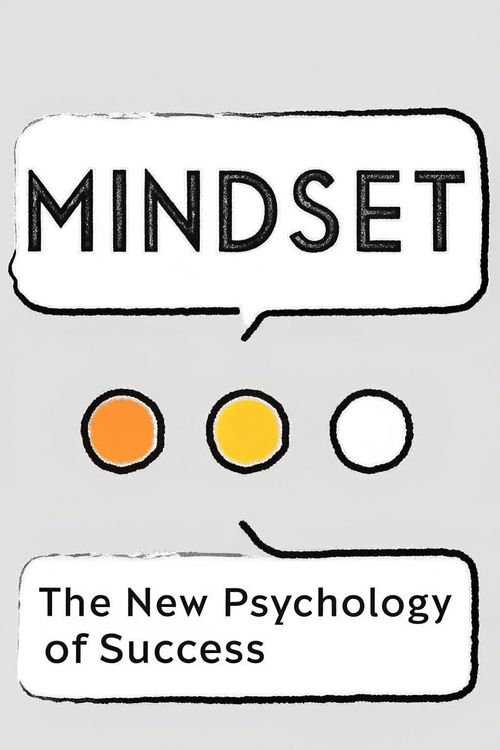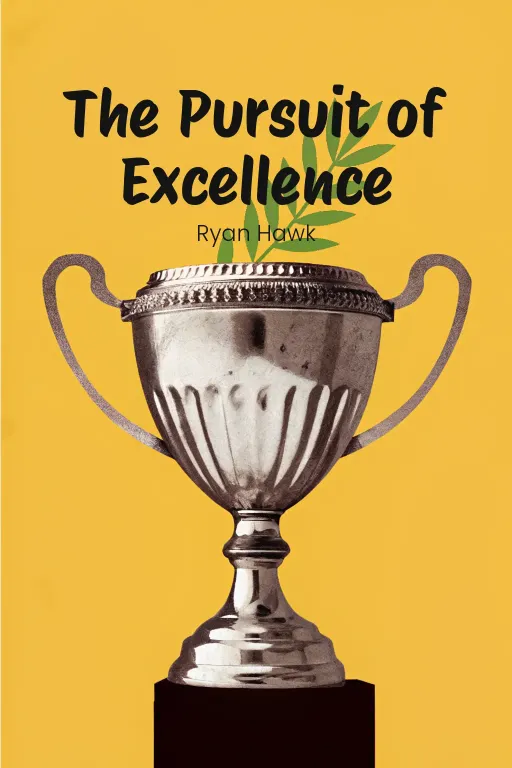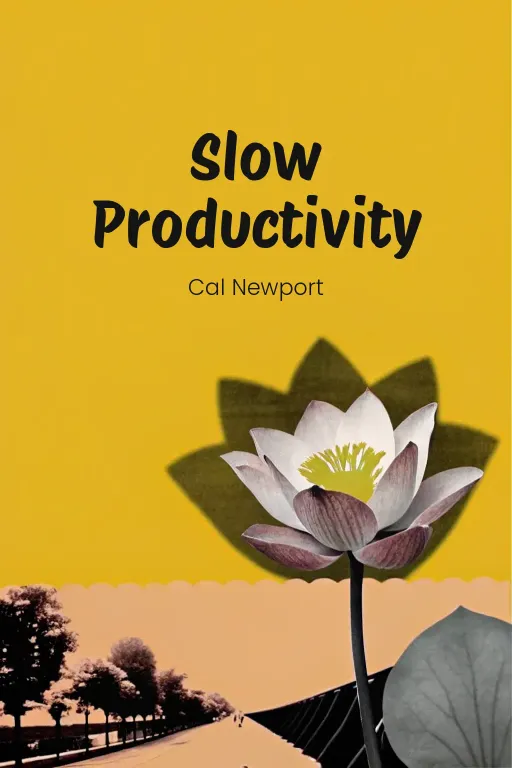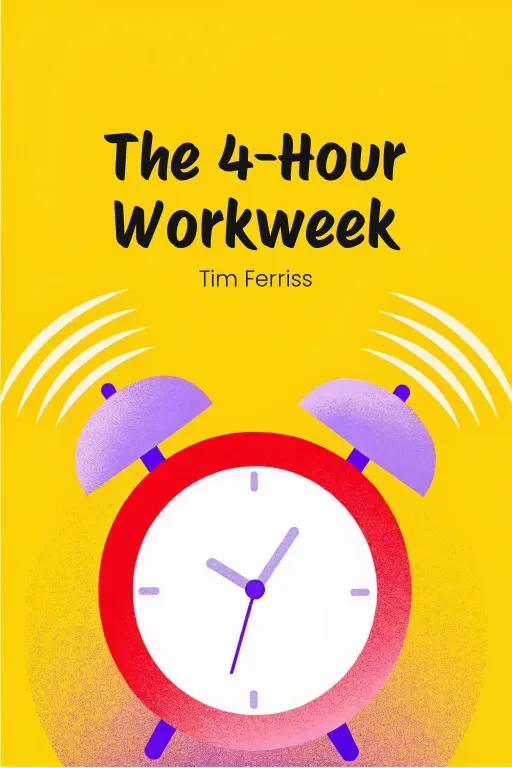
Seize Your Day: Morning Rituals for Success
Podcast by Beta You with Alex and Michelle
And Two Other Short Guides to Achieving More at Work and Home
Seize Your Day: Morning Rituals for Success
Part 1
Alex: Hey everyone, welcome to the show! Let me throw a question out there: What do your mornings typically look like? Are they a picture of calm productivity, or more like a mad dash just to get out the door? Michelle: Alex, if we're being real, I suspect most people are in that second category, right? You know, battling alarms, wading through emails, probably hunting for their keys. Definitely not a recipe for success. Alex: Exactly! And that’s precisely what we’re diving into today. We're exploring Laura Vanderkam's book, “What the Most Successful People Do Before Breakfast”. It’s all about how to unlock the hidden potential of your mornings – not as a time to just survive, but to really achieve personal and professional growth. Michelle: Okay, that sounds… ambitious. So, are we talking about some kind of magic formula that only CEOs and those super-disciplined types can actually pull off? Alex: Not at all! Vanderkam really bases her approach on solid research and real-world examples. She shows how mornings – when your willpower is actually at its peak – can be leveraged for serious growth. Think about building new habits, investing in relationships, and really making headway on your most important goals. Michelle: Alright, you've definitely piqued my curiosity. What’s our plan of attack here for today’s episode? Alex: We're going to break it down into three main parts: First, we'll talk about the morning chaos that most of us find ourselves in, and how much untapped potential is just sitting there, waiting to be reclaimed. Then, we'll get into the science behind willpower and why mornings are your secret weapon in that department. Finally, we'll jump into some specific, actionable strategies you can use to transform those early hours into a real launchpad for success. Michelle: So, we're going from chaos to calm, with a little science thrown in, plus some practical tips. Alright, I'm in. Let’s see if mornings can actually be about more than just hitting the snooze button.
The Madness of Mornings
Part 2
Alex: So, let's dive into why so many of us feel stuck in what Laura Vanderkam calls the "madness of mornings," shall we? Mornings just often feel like the most rushed, chaotic part of the day, don’t they? From that jarring alarm to hitting send on that first, frantic email, it's like a race we never signed up for. Michelle: You're not wrong. Mornings have this inherent stress level, right? But what's actually driving that pressure? Is it purely that we're juggling too much, or is there something more at play here? Alex: Well, it's partly about how we let our mornings unfold. Vanderkam points out that, for most of us, mornings are a purely reactive time – responding to alarms, rushing to get the kids ready, answering those last-minute emails. We cram so many routine and often mundane tasks into those early hours that we leave zero mental or physical space for anything truly meaningful. She gives this great example in her book about juggling three young kids. Even with careful prep – like lining up coats and backpacks the night before – something as small as a disagreement over socks could throw the whole morning into absolute chaos. Michelle: Okay, that sounds pretty unavoidable, doesn’t it? I mean, if you have kids or a super busy job, mornings are just “naturally” chaotic. What’s the alternative here? Is she really suggesting we just wake up three hours earlier? Alex: Not necessarily. It’s not about adding more time; it's about being intentional with the time you already have. According to Vanderkam, mornings are this perfect blank slate, because they come with fewer external demands and fresher reserves of energy and willpower. But here's the real kicker: most people don't use them effectively. Instead, we lose them to distractions, low-value tasks, and -- as the book puts it -- activities that create the illusion of productivity. Michelle: Ah, the old "illusion of productivity." Let me guess: we're talking about that morning doom-scrolling, right? Emails, newsfeeds, endless TikTok videos… Alex: Exactly! So many people mistake activity for accomplishment, especially in the mornings. Scrolling through headlines or clearing out your inbox feels like you're "getting things done," but those aren't really activities that push you toward those higher-level goals. And, sadly, that sets the tone for the whole day. You've wasted your prime energy on tasks that don't actually matter. Michelle: That's a tough pill to swallow. And it definitely feels like a missed opportunity. So, what does Vanderkam suggest? How do we, you know, flip the script and stop mornings from running the show? Alex: First, we have to recognize that mornings are an opportunity to set the day’s tone, not just survive it. Think of mornings as your highest-value hours. After a full night's rest, your mind is clear, your focus is sharper, and your self-discipline is at its peak. Research backs this up – psychologists like Roy Baumeister have shown that willpower functions like a muscle. It’s strongest after you’ve recharged overnight, but it weakens as you encounter decisions and distractions throughout the day. Michelle: Okay, that makes sense in theory. But simply knowing mornings are important doesn’t magically make them less hectic. What's the next step once you're aware of this, what was it, "untapped potential?" Alex: Intentionality is key. Vanderkam suggests we should deliberately structure our mornings around activities that truly serve our long-term goals. For example, the book uses Steve Reinemund, the former CEO of PepsiCo, as a fantastic case study. He woke up at 5:00 a.m. every day to run, pray, and have breakfast with his family before diving into his high-pressure job. Those morning rituals weren't random – they were tailored specifically to reflect his core values: health, faith, and connection with his family. Michelle: I have to say, that sounds insanely disciplined. But let's be real here – Reinemund was a CEO. He probably had staff handling all the mid-morning emergencies. For the rest of us, mornings are often dominated by things we can't control, like kids needing attention, or that sudden urgent work email. Alex: You're absolutely right – there will always be unpredictable elements. But even small shifts can make a difference. For example, Vanderkam talks about adapting her approach during the specific chaos of parenting. Sometimes mornings meant squeezing in small, meaningful moments of connection with her kids instead of grand plans for herself. The point is aligning your routines with what truly matters rather than letting randomness dictate your time. Michelle: So, it’s less about micromanaging every second and more about setting priorities. But how do you balance something like family time – where you’re, you know, catering to other people's needs – with carving out that personal time for growth? Those feel like competing interests. Alex: Great question! And Vanderkam addresses that, too! Mornings don't have to be an all-or-nothing scenario. It's about reclaiming the moments you can control. For instance, if you focus on reducing randomness—like prepping breakfast or laying out clothes the night before—you free up mental space for those quality interactions or personal pursuits. Even fifteen focused minutes of journaling, reading, or exercise can completely transform your day. Michelle: Alright, I can see how that could work. But preparing the night before is always easier said than done. If you're totally wiped out in the evening, the last thing anyone wants is to spend extra time planning for the next day. Alex: True, but think of preparation as a way to invest in your own future sanity. Vanderkam calls it "removing barriers." Whether it’s leaving your workout clothes by the door or packing lunches ahead of time, small actions the night before can make mornings significantly smoother. It’s not about perfection; it’s about systems that lead to less stress and more focus. Michelle: Okay, I'm following so far. But I'm still playing devil's advocate here. Why should anyone go through all the trouble of overhauling their mornings instead of just slogging through like usual? Alex: Because the rewards go far beyond just having a calmer start – there's real productivity and personal growth on the line. Tomorrow's success actually begins with today's choices, particularly those early-morning ones. How we manage those hours is a direct reflection of how we prioritize what we truly value.
The Science of Willpower
Part 3
Alex: So, to really make the most of our mornings, we need to understand the chaos first. And a big part of that is tapping into the power of willpower. We’re going to explore why it's strongest in the morning, how it works like a limited resource, and how we can leverage it to build effective routines. Michelle: Okay, so we're talking about self-control, that thing that decides whether we eat the cake or actually go to the gym. What's the basic idea behind it? Alex: Well, think of willpower as a finite resource—like a battery that drains throughout the day. Psychologist Roy Baumeister's research has shown that every decision we make actually depletes a bit of our mental "charge". That’s what we mean by decision fatigue, where your ability to make good choices just gets weaker and weaker as the day goes on. Michelle: Decision fatigue; I get that. By dinner, ordering in is “always” easier than actually cooking. But why is this specifically important in the morning? Alex: Because mornings are when your willpower battery is basically full. After a night's sleep, you’re mentally at your strongest. You're better equipped to focus, be disciplined, and solve problems creatively. Baumeister’s cookie study really showed this. Participants who had to resist eating those freshly baked cookies struggled later with problem-solving. It had drained their reserves. Michelle: So, resisting cookies zapped their brainpower. That explains why big decisions in the evening feel impossible. Makes sense that mornings give us an advantage when we are not too drained yet. Alex: Exactly. And that's huge. If you tackle your most important goals—the ones you tend to procrastinate on—in the morning, you’re working with your peak willpower. If you wait until later? Well, you’re way more likely to get sidetracked, make poor choices, or just give up on them altogether. Michelle: That makes sense. But what about people who are naturally night owls? Are they just out of luck? Alex: Good question! While it's true that some people are wired differently, mornings still come with some built-in advantages for almost everyone. It has to do with our circadian rhythms, our internal clock. Early in the day, you tend to have a natural cognitive and emotional boost, lower stress, balanced hormones. Studies even show people are more optimistic in the morning. Researchers looking at social media posts have found that people genuinely use more positive language in the morning. Michelle: So, basically, mornings are the best time to be a functioning human being. But forgive my skepticism – if this is true, then why does everyone reach for coffee by 8 AM every morning? Alex: Another fair question. A lot of it comes down to whether we live in sync with our natural rhythms. If we ignore them by staying up late, diving straight into chaos, or distracting ourselves, we waste those prime hours. But if we intentionally use our mornings for activities that matter, that natural clarity and focus gets amplified. Michelle: Let's get practical here. You mentioned making tasks habitual to save willpower. What's the idea behind that? Alex: It’s simple: the fewer decisions you have to make, the less you drain your willpower. Turning meaningful activities into habits means you don’t have to negotiate with yourself every day. So, instead of debating whether to exercise each morning, a firm routine—like, say, always working out at 6:30 a.m.—makes it automatic. It takes some effort initially, but over time, it preserves your willpower for other stuff. Michelle: So, instead of waking up thinking, "Should I meditate? Should I journal?", you aim to remove the question altogether. Sounds a bit too… regimented, doesn't it? Where's the room for just, you know, enjoying your morning? Alex: That’s where intentionality becomes very important. It is not about packing your mornings with rigid, joyless activities. It is about creating habits that reflect your values and aspirations. And I think this is a good time to mention Steve Reinemund again. His 5 a.m. routine wasn’t about just arbitrarily being strict. It was designed to align with his biggest priorities: health, spiritual grounding, and family. Michelle: Right, but let's be honest, the guy was the CEO of PepsiCo. He probably had people handling his chaos so he could enjoy his morning runs and family breakfasts. How does this translate to, say, a single parent or someone who works shifts? Alex: The principle still works; the scale is just different. It's not about being perfect or copying someone else's routine. It's about building rituals that fit “your” life. If your mornings are already packed, start small. Dedicate just 10 minutes to something meaningful – read, stretch, enjoy coffee without distractions. Over time, those small wins build momentum and make mornings feel purposeful, not rushed. Michelle: Okay, I'll give you that. If we could transform mornings from a grind to something intentional and maybe even enjoyable, that's a win. But what happens when life throws curveballs and things go off the rails? Alex: That’s where adaptability comes in – something else Vanderkam talks about. Consistency is important, but flexibility is vital. If your schedule changes, focus on keeping the intention behind your routine, even if it looks different. The goal is to use your mornings to invest in what's most important, whether it's your health, creativity, or relationships. Michelle: I see. So, it is less about rigidly sticking to a routine and more about the bigger picture. Mornings are the blank canvas to align your actions with your priorities. That's something I can get behind.
Transforming Mornings into Rituals
Part 4
Alex: Okay, now that we've hammered down the importance of willpower, let’s dive into the practical side of morning rituals. How do we translate these principles into routines that actually work? You know, routines that reflect what's important to us and ultimately lead to a more fulfilling life. Vanderkam really breaks it down systematically, and it starts with something fundamental: time tracking. Michelle: Time tracking, huh? So, this is where we confront the brutal reality of our wasted hours, right? Like, staring at a spreadsheet that screams, "You spent how long on TikTok?!" Alex: Well, not exactly. Time tracking isn't meant to be a judgment zone. It's more about awareness. Vanderkam’s point is that you can't really make changes until you see where your time is “actually” going. Log your daily activities for a week, and you'll start spotting patterns, inefficiencies—maybe even pockets of time you didn't realize you had. Michelle: Okay, fair enough. But what if the log reveals that our mornings are just… utter chaos? Does the book offer any real-world examples of people turning that around? Alex: Definitely. Take Debbie Moysychyn, for instance. Her mornings used to be filled with all these low-priority tasks, like tidying up or frantically answering emails. After tracking her time, she realized that early mornings were the quietest, most focused part of her day. So, she shifted that time to concentrated work, and bam! Instant productivity boost. Can you imagine getting more done before breakfast than most people do all day long? Michelle: That's pretty wild. But let's pick at this idea of "redirecting time" a little more. It sounds easy, but is it really? If someone's already maxed out, where do they even begin to squeeze in these new habits? Alex: Well, it starts with figuring out what's high-value versus low-value. Vanderkam suggests asking yourself, "Is what I'm doing in the morning actually serving my long-term goals?" Or, "Does this line up with my priorities?" Often, small tweaks—trading 15 minutes of emails for focused reading, or day planning—make a difference. You don't need a total overhaul. It's all about spotting the untapped potential. Michelle: So, like a budget. Reallocating resources to what truly matters? Alright, I’m on board. Speaking of aligning with your priorities, let’s talk about visualizing the ideal morning. Alex: Exactly! Visualization is the bridge from awareness to action. Vanderkam wants you to picture your perfect morning; but not like some perfectly curated Instagram post, more what brings you joy and gets you closer to your goals. Kathryn Beaumont Murphy used to start her days stressed, rushing her daughter to school. But by consciously reshaping her mornings, she added breakfast with her daughter. Simple! But that shifted her feelings from being hectic to a genuine connection. Michelle: Right. It's practical, not some "rise and grind at 4 a.m." nonsense. But how do you deal with the motivation killers? What if someone envisions a morning full of stuff they just dread doing? Alex: That's where habit-building comes in. Vanderkam emphasizes starting small and being consistent. Judi Rosenthal, for example, carved out just 45 minutes every morning to have breakfast with her daughter. That ritual became the core of her day and their relationship. Start small, build habits that run on autopilot, and you free up willpower for other things. Michelle: So, it’s about finding your rhythm. But, playing devil's advocate again, what happens when life throws a wrench in the gears? You know, those weeks when routines just… fall apart? Alex: Well, that's where adaptability is key. Vanderkam argues that structured mornings need to be flexible enough to evolve. She transitioned from morning runs to breakfast with her children when her priorities shifted during pregnancy and parenting. You know, the rituals change, but the intention—using mornings for meaningful gains—stays the same Michelle: That makes all the difference. Randeep Rekhi’s story in the book really showcases this. He's juggling a demanding finance job and a side gig running his family's winery. He wakes up at 5 a.m. to carve out uninterrupted time for both physical fitness and business tasks that would've been impossible once the day heated up. Alex: Exactly! Rekhi’s mornings really embody what Vanderkam calls "guaranteed me-time." Despite the unpredictable nature of life, that time becomes a protected space for growth. And, even better, those calm, purposeful mornings ripple out and shape the rest of your day. Michelle: It's like momentum, right? The intentional morning doesn't just create more time, it boosts your energy and focus long after breakfast. That's a pretty good reason for even the biggest skeptics to give it a shot.
Conclusion
Part 5
Alex: Okay, so to bring it all together, what we've really discovered is that mornings are way more than just a mad dash to get out the door, right? They’re a real opportunity—a fresh start where we have the most willpower, the sharpest focus, and a chance to actually put our priorities first. Michelle: Exactly, and if we stop just reacting in the mornings—you know, just diving into emails or hunting for that other sock—and start being a little more intentional, those early hours can totally shape the rest of the day. It's really about taking back that time for the things that truly matter, whether that’s work, family, or just a little peace and quiet. Alex: Totally. And the trick is to build routines that actually reflect what we “really” want out of life. Start small, stay consistent, and remember to adjust when, you know, life inevitably throws us a curveball. Whether it's journaling, getting some exercise, or connecting with the people we love, mornings are “really” your launching pad for success and feeling fulfilled. Michelle: Alright, so here’s a challenge for everyone: What's one small thing you can do to take back your morning tomorrow? Just think of 15 minutes—no need for any huge changes, just something meaningful. Because, hey, if mornings are the foundation, shouldn't we build that foundation right? Alex: Perfect, Michelle. Thanks for tuning in everyone. Here's to creating mornings that “really” work for you!









